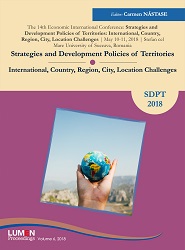Illustrating the Relationship Between Accounting and Taxation – A Romanian Approach. The Ishikawa Diagram
Illustrating the Relationship Between Accounting and Taxation – A Romanian Approach. The Ishikawa Diagram
Author(s): Cristina Timofte (Coca), Simona-Maria Tanasă (Brînzaru)
Subject(s): Public Finances
Published by: Editura Lumen, Asociatia Lumen
Keywords: Accounting; taxation; cause and effect; the Ishikawa diagram;
Summary/Abstract: It can be stated that in Romania there is a clear dependence of taxation on accounting that one can argue biases the quality of the information provided by the accounting information system. In this paper the authors analyzed, by use of environmental analysis and different methodological methods several possible causes that conduct to the statement of the following paradigm: “The accounting information quality is biased by taxation”. In order to achieve this, as an environmental analysis tool the Ishikawa diagram or cause-effect diagram was used. The main findings are that in Romania, to a large extent, accounting is not disconnected from taxation, although steps were made in this direction through the adoption and implementation by the listed companies of the IFRS. There can be noticed a book-tax alignment tendency in what concerns the accounting result and the tax result, although there are regulatory differences meant to address the possible temptation towards the manipulation of the accounting result by the taxpayer. To some extent it can be argued that the main user of the financial reports issued according to accounting rules and regulations is mainly the state and to a smaller extent the other stakeholders and that sometimes professional judgments made by specialists when choosing accounting policies and treatments are influenced by taxation.
- Page Range: 413-420
- Page Count: 8
- Publication Year: 2018
- Language: English
- Content File-PDF

